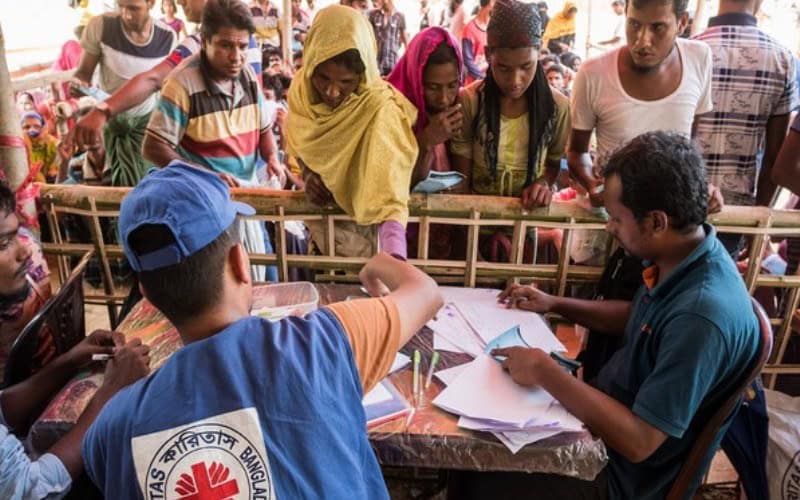Dhaka: Authorities here have said that thousands of Rohingya living in the refugee camps in southern coastal regions of Bangladesh will be relocated to an island in the Bay of Bengal that is prone to flooding.
The country’s refugee commissioner refused to divulge when the Rohingyas would be moved, but a senior Navy officer involved in building facilities on the island said the relocation could start by December, with some 500 refugees sent daily, Al Jazeera reported.
Some 740,000 Rohingyas fled Myanmar in August 2017 in the face of a military crackdown, joining 200,000 refugees already in makeshift tent settlements at Cox’s Bazar.
Dhaka has long wanted to move 100,000 refugees to the islet, saying it would take pressure off the overcrowded border camps where almost a million Rohingya are currently residing.
Bangladesh had been planning since last year to relocate the refugees to the desolate flood-prone site, which is an hour by boat from the mainland.
Rights groups have warned that the island, which emerged from the sea only about two decades ago, might not be able to withstand violent storms during the annual monsoon season.
Residents from nearby Hatiya Island told Human Rights Watch the island was not habitable.
“Part of the island is eroded by the monsoon every year,” a man was quoted as saying.
“In that time, we never dare go to that island, so how will thousands of Rohingya live there?” he added further.
In the past half-century, powerful cyclones have killed hundreds of thousands of people in the Meghna River estuary where the island is located.
Rohingya leaders would be taken to Bhashan Char to view the facilities and living conditions soon, the commissioner said.
The official also said that a nine-foot (three-metre) high embankment has been built on the island to ensure the safety of the refugees from tidal surges during cyclones, along with a warehouse to store months worth of rations.
Bangladesh and Myanmar signed a repatriation deal two years ago, but virtually no refugees have returned to date, with UN investigators describing conditions in Myanmar as “unsafe, unsustainable and impossible”.

